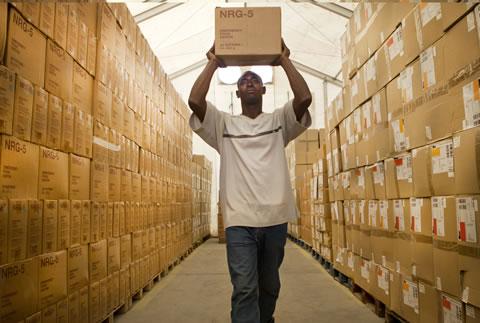
Country engagement
Through its coalition member organisations, PtD supported ministries of health, national supply chain organisations, NGOs, donor agencies and implementing partners to plan, implement and sustain reforms that strengthen human resources (HR) for health supply chain management (SCM). PtD matched country needs with funding and/or PtD member organisations that can provide the required service.
The aim of PtD's country engagement strategy was to increase the level of activity, participation and coordination around HR for SCM, so that HR for SCM plans, activities and strategies are incorporated into ministry of health work plans and supply chain strategies.
Over time, PtD envisioned that this would lead to the emergence of a new reality in which country-level supply chain workers are better equipped to manage their public health supply chains.
PtD worked towards this by being an active and respected intermediary that adds value by not only sharing knowledge, but also by transforming ideas into practical solutions.
Country engagement options
In 2021, PtD published the SCM Professionalisation framework, which presents a career pathway for health SCM professionals to transform health supply chain management into a recognised profession of the highest integrity. There is a real need to standardise the skills and competencies required for supply chain roles so that employers in the public and private sectors can recruit the right people with the right qualifications, and so that academic institutions and professional associations can produce the professionals to meet market demand.
Workforce development initiatives that focus on identifying and building a robust workforce:
- Workforce assessment: diagnosis of opportunities and challenges in staffing, skills, working conditions and motivation
- Training needs analysis, design and implementation
- Competency mapping and job profile development
- Workforce optimisation
- Mapping educational needs and curriculum development
- National supply chain strategy and policy adaptation
Performance initiatives that identify and enhance workforce performance:
- Rapid retention analysis and retention strategy development
- Supportive supervision system development
- SCM leadership development (STEP 2.0)
- Mentoring and coaching strategy development
Professionalisation of health SCM:
- Advocating the creation of local professional associations and formal logistician cadres
- Advocating the recognition of supply chain cadres in national human resources for health strategies and plans
- Implementation of the SCM professionalisation framework
